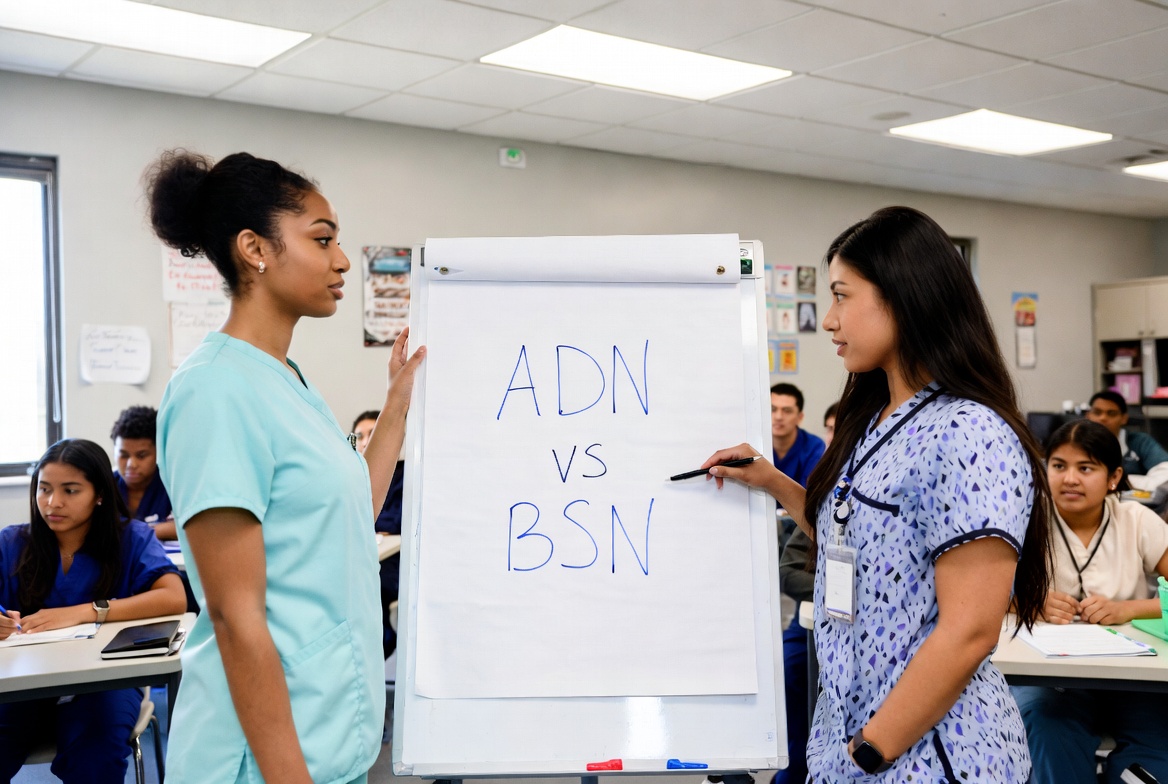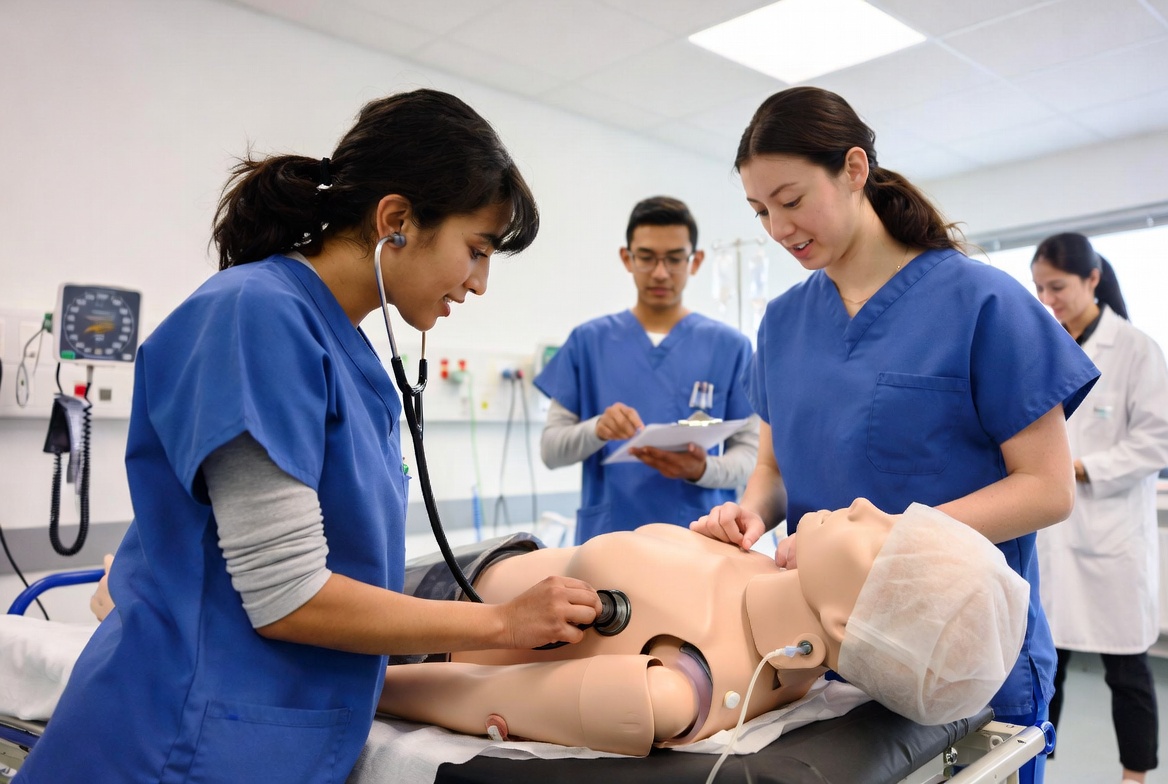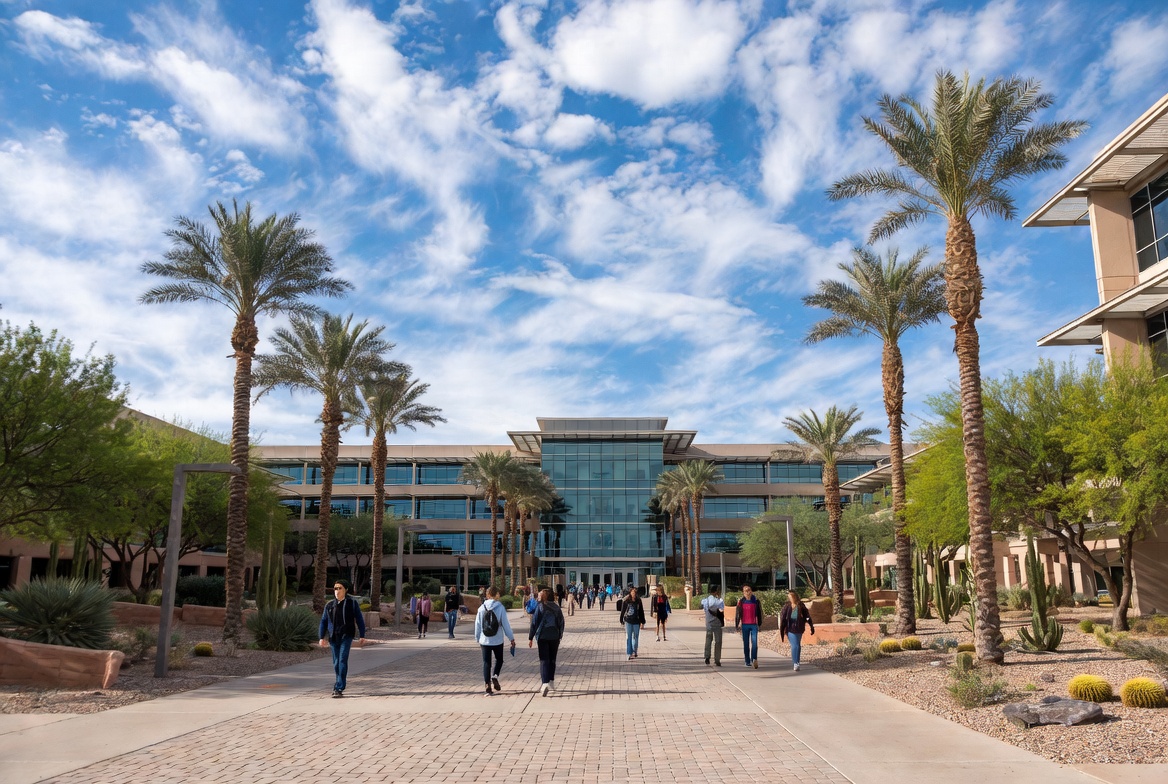Advancing Your Nursing Career in the Grand Canyon State: The Ultimate Guide to Arizona’s LPN-to-RN Bridge Programs
For Licensed Practical Nurses (LPNs) in Arizona, your dedication and hands-on experience form the bedrock of patient care. If you’re looking to expand your knowledge, increase your earning potential, and take on greater leadership responsibilities, the path to becoming a Registered Nurse (RN) is a well-defined and rewarding journey. This guide is your complete roadmap to LPN-to-RN bridge programs in Arizona, designed to help you advance your career in our state’s thriving healthcare landscape.
These streamlined programs honor your existing LPN education and experience, offering a faster route to becoming an RN than a traditional four-year degree. We’ll cover the powerful benefits of making this transition, what to expect from Arizona’s top programs, and how to choose the perfect fit for your professional goals.
Why Bridge from LPN to RN in Arizona? The Data-Backed Benefits

Making the leap from an LPN to an RN is more than just a new title—it’s a significant investment in your future. The motivations are clear and compelling, backed by real-world advantages.
- Drastically Increased Earning Potential: This is one of the most significant benefits. According to the U.S. Bureau of Labor Statistics (BLS), the 2023 median annual salary for Registered Nurses in Arizona was $86,740, while LPNs earned a median of $63,730. That’s a potential increase of over $23,000 per year.
- Expanded Scope of Practice: As an RN, you move from task-based care to a more holistic role. You will be responsible for comprehensive patient assessments, developing care plans, administering a wider range of medications, and performing more complex procedures.
- Enhanced Career Opportunities and Specializations: An RN license opens doors to countless specializations that are often unavailable to LPNs. You can pursue careers in critical care (ICU), emergency nursing, pediatrics, oncology, or surgical services.
- Greater Autonomy and Leadership Roles: RNs have more authority to make critical patient care decisions. This transition also positions you for leadership roles such as charge nurse, unit manager, or nurse educator.
- Long-Term Job Security: The demand for Registered Nurses in Arizona and nationwide continues to grow. The BLS projects a 6% growth in RN jobs through 2032, ensuring robust job security in a vital sector.
Navigating Arizona’s LPN-to-RN Program Landscape
Arizona’s colleges have designed their LPN-to-RN bridge programs specifically for working nurses. They build directly on your existing knowledge, saving you time and money.
How Long Does it Take to Bridge from LPN to RN in Arizona?

Most LPN-to-RN bridge programs in Arizona can be completed in 12 to 24 months. The exact duration depends on whether you are pursuing an Associate Degree in Nursing (ADN) or a Bachelor of Science in Nursing (BSN) and whether you attend full-time or part-time.
ADN vs. BSN: Choosing Your RN Pathway

A critical first step is deciding which degree is right for you. Both paths lead to RN licensure, but they have different focuses and career implications.
| Feature | Associate Degree in Nursing (ADN) | Bachelor of Science in Nursing (BSN) |
| **Time to Complete** | Typically 12-18 months | Typically 18-24 months |
| **Focus** | Core clinical skills, direct patient care | Clinical skills plus leadership, research, community health |
| **Best For** | The fastest route to becoming a licensed RN | Nurses seeking leadership roles, advanced degrees, or Magnet hospital employment |
| **Cost** | Generally more affordable | Higher tuition, but may offer a greater long-term ROI |
Typical Curriculum: Building on Your Foundation
Your bridge program curriculum is designed to fill the gaps between your practical nursing education and the comprehensive knowledge required of an RN. You can expect advanced coursework in:

- Advanced Pharmacology: Deeper understanding of drug classifications, interactions, and administration in complex cases.
- Medical-Surgical Nursing: Managing adult patients with a wide range of acute and chronic illnesses.
- Maternal and Child Health: Care for patients across the lifespan, from labor and delivery to pediatrics.
- Mental Health Nursing: Comprehensive care for patients with psychiatric and mental health disorders.
- Nursing Leadership and Management: This crucial course prepares you for the RN’s role in delegation, supervision, and patient care coordination.
All programs include a significant clinical rotation component, giving you essential hands-on experience in hospitals, clinics, and other healthcare settings.
Top Arizona Colleges Offering LPN-to-RN Bridge Programs
Several reputable, state-approved institutions across Arizona offer excellent LPN-to-RN bridge programs. Here are a few top choices to start your research.
Note: Program details can change. Always verify information directly with the college.

| College Name | Campus Location(s) | Program Highlights |
| :— | :— | :— |
| **Jersey College** | Mesa, Tucson | Offers an LPN to RN Bridge program focused on preparing graduates for the NCLEX-RN. |
| **Central Arizona College** | Coolidge, Multiple Campuses | Competitive LPN to RN Bridge Program that can be completed in about 2.5 semesters. Known for strong clinical partnerships. |
| **Mohave Community College** | Kingman, Multiple Campuses | Offers a hybrid program with online theory and in-person labs/clinicals, providing flexibility for working LPNs. |
| **Pima Community College** | Tucson | Well-regarded LPN to RN transition program with a strong local reputation in Southern Arizona. |
| **Glendale Community College** | Glendale (Phoenix Area) | Part of the Maricopa network, offering an advanced placement option for LPNs to enter their established nursing program. |
| **Yavapai College** | Prescott | Provides an LPN to RN bridge program serving central and northern Arizona. |
Your Checklist for Admission and Arizona RN Licensure

To successfully enroll and become a licensed RN, you’ll need to meet requirements from both your chosen school and the Arizona State Board of Nursing (AZBN).
Common Admission Requirements:
- ✅ A current, unencumbered Arizona LPN license or a multi-state license.
- ✅ Completion of prerequisite college courses (like Anatomy & Physiology, English) with a minimum GPA (often 2.5 or higher).
- ✅ A passing score on a nursing entrance exam, such as the HESI A2 or TEAS test.
- ✅ A clean background check and drug screening.
- ✅ Many programs require or prefer at least 6-12 months of work experience as an LPN.
Arizona State Board of Nursing (AZBN) Licensure Requirements:
After graduating, you must:
- ✅ Submit an application for RN Licensure by Examination to the AZBN.
- ✅ Provide official transcripts from your nursing program.
- ✅ Pass the National Council Licensure Examination for Registered Nurses (NCLEX-RN).
- ✅ Complete a fingerprint-based criminal background check.
- ✅ Provide proof of U.S. citizenship or lawful presence.
Making the Right Choice: How to Select Your Program

Choosing the right program is a personal decision. Weigh these factors carefully to find the best fit for your life and career goals.
- Accreditation: This is non-negotiable. Ensure the program is approved by the Arizona State Board of Nursing and accredited by the ACEN or CCNE. Accreditation is essential for taking the NCLEX and for future educational opportunities.
- NCLEX-RN Pass Rates: A high pass rate is a strong indicator of a quality program. Ask the admissions office for their most recent statistics.
- Flexibility and Scheduling: Does the program offer part-time options or hybrid classes (online coursework with in-person clinicals)? Find a schedule that works with your job.
- Cost and Financial Aid: Compare tuition and fees. Ask about scholarships, grants, and payment plans specifically for nursing students.
- Clinical Placements: Inquire about where clinicals are held. Are the partner hospitals convenient for you? Do they offer a variety of experiences?
Financing Your Future: Scholarships and Aid in Arizona

Don’t let cost be a barrier. Numerous financial aid options are available:
- FAFSA: Start by completing the Free Application for Federal Student Aid (FAFSA) to determine your eligibility for federal grants (like the Pell Grant) and student loans.
- Nursing Scholarships: Look for scholarships from organizations like the Arizona Nurses Foundation, the American Association of Colleges of Nursing (AACN), and NurseCorps.
- Employer Tuition Reimbursement: Check if your current employer offers tuition assistance for employees advancing their education.
Frequently Asked Questions (FAQ)

Q: Are there any fully online LPN-to-RN programs in Arizona?
A: No. Due to the hands-on nature of nursing, all state-approved RN programs in Arizona require in-person clinical hours and lab work. However, many programs offer a hybrid format where lectures and coursework are online, providing significant flexibility.
Q: Can I work full-time while in an LPN-to-RN bridge program?
A: It can be challenging, but many students do it. Success depends on a strong support system and excellent time management. Look for part-time program options or consider reducing your work hours, especially during intensive clinical rotations.
Q: How much does an LPN-to-RN bridge program cost in Arizona?
A: Costs vary widely. A community college ADN program may cost between $10,000 – $20,000 total, while a university BSN program will be more. Always check the program’s website for the most current tuition and fee schedule.
Conclusion: Your Future as an RN Awaits

Embarking on an LPN-to-RN bridge program in Arizona is a powerful, strategic investment in yourself and your future. It’s a challenging path, but one that leads to a more autonomous, impactful, and financially rewarding nursing career. By carefully researching programs, understanding the requirements, and leveraging your valuable LPN experience, you can successfully navigate this journey. Your dedication to advancing your skills will not only transform your career but also elevate the health and well-being of your entire community. The Grand Canyon State needs skilled, compassionate RNs like you. Are you ready to answer the call?